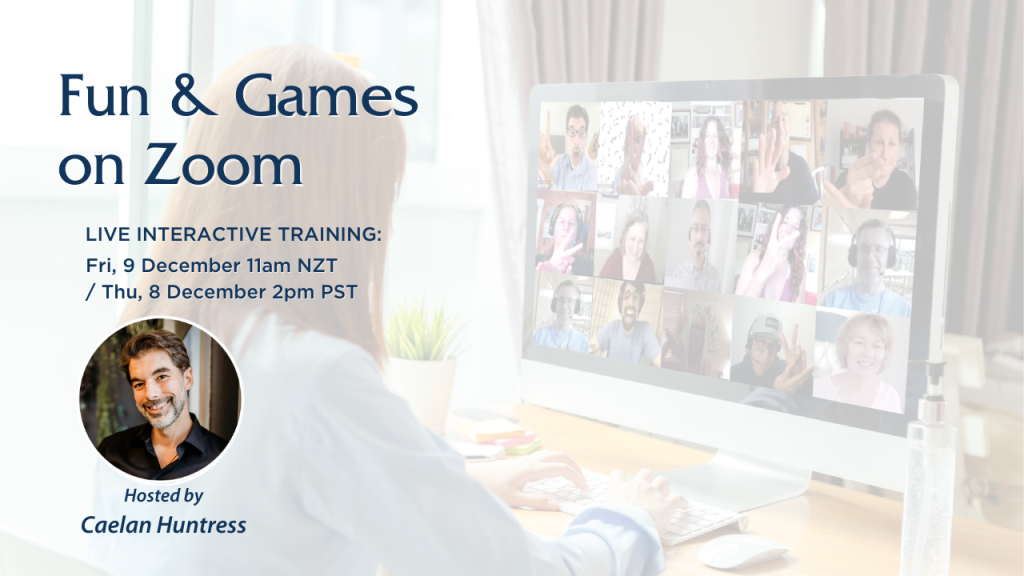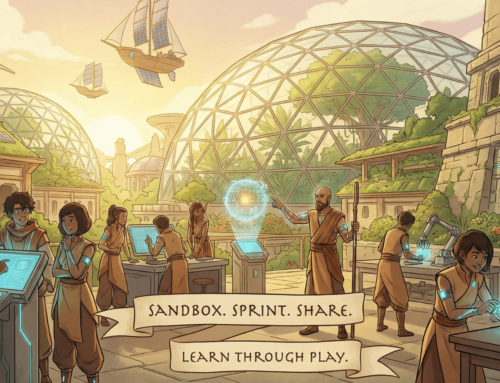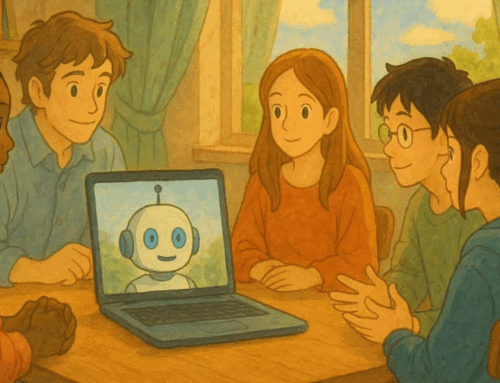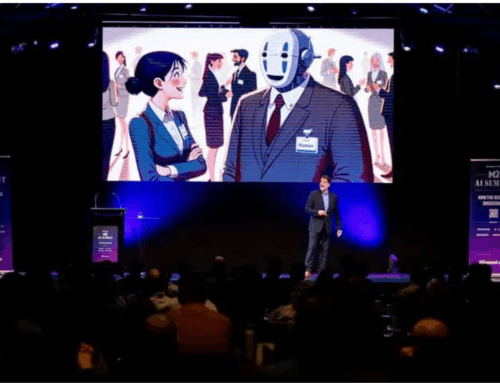People who wear glasses will flash a bright white square in the reflection of their lenses when they navigate to a new tab. If a virtual meeting is boring, it’s easy to multitask, check emails, and scroll through social media. The person leading the meeting was reading her bullet points off of a slide, which is a sure method to lose the attention of an audience.
I raised my virtual hand as she paused to take a breath, took myself off of mute, and said, “Hey, can we take a break to play a quick 2-minute game?” All those white squares disappeared, and suddenly I had the attention of everyone in the meeting.
I described the rules for Rock, Paper, Scissors – everybody played against me, and I would pick one of the three hand positions. Anyone who beat me could keep their camera on. Anyone who lost would turn their cameras off, and those who tied could choose. Anyone who did not want to play could press the ‘Stop Video’ button in Zoom, and spend the two minutes however they wanted.
After a few rounds, we gave a round of applause for the winners, and played again. By the time the two minutes was over, I handed the attention of the meeting back over to the host. Everyone was refreshed, energised, and paying attention.
If you’ve been spending a lot of time in virtual meetings, and you’ve been wondering ‘How do I play fun games on Zoom?’ well, I’ve got a few ideas.

Friday, 9 December // Thursday, December 8th
9am AEDT / 11am NZDT // 2pm PST / 5pm EST
Register To Play Fun Games on Zoom
Playful Productivity improves our capacity, connection, and collaboration.
Work without will or wonder is just drudgery. To bring the best parts of ourselves to our work, we need to invite the playfulness that comes out during games.
Games are a shortcut to engagement. Play lets us interact with our team, not just as co-workers, but as people having fun. The stronger relationships developed through play create a culture of people who support their friends.
Play with your work, especially if it’s boring.
When I talk with C-level executives about increasing the engagement and interactivity in their virtual team meetings, they will often scoff at first at this idea.
Playing games is seen as the enemy of diligent work, when this is not actually the case. “People don’t play games to avoid work,” Dr Jason Fox said. “People play games to engage in well-designed work.”
Having clear goals, well-defined rules, and iterative feedback is a relief to most workers, after spending so many of their working hours trudging through unclear initiatives with no clear understanding of whether or not their efforts are even effective. Games give a break from work because they give us a simple, clear understanding that is often absent from our work.
How can you turn your work into a game?
ADPRI analysed the daily journal entries of 50,000 workers over a period of time to predict the qualities that led to greater retention, performance, engagement, resilience, and inclusion. They found the most powerful predictors were found in the answers to these questions:
- Was I excited to work every day last week?
- Did I have a chance to use my skills every day?
- At work do I get a chance to do something I’m good at and I love?
Think about answering these questions when asked about what you enjoy.
Your answers will reveal a side of yourself that is authentic and engaged. Are these the same answers you would give, when asked about your work?
“These findings suggest,” wrote Marcus Buckingham in the Harvard Business Review, “that only when a company** intelligently links what people love to their actual activities **will it achieve higher performance, higher engagement and resilience, and lower turnover.”
How do you link your duties to what you love? The bridge is play.
Remember, nobody can tell you how to play. We can invite you to play, and bring you to a place to play, but how you play and what you do in the playground is totally up to you.
If you can allow yourself this exploratory time in your work, even if it’s only for a few minutes, you can:
- Be excited about what you are doing
- Have a chance to use your skills
- Do something you’re good at and you love.
Play is an internal choice, not an external obligation.
“In all forms of playful fighting and chasing, each child has the right to call time-out or to quit if the emotional or physical challenge becomes too great. Without that right, the activity is no longer play.” – Peter Gray
You get to choose how you play. Nobody can tell you that it’s time to get off the swingset and go to the slide. When you are on a playground, with the agency to do what you like, you will be more engaged with what you are doing, because you can bring more of your authentic self to the experience. You will do your best work when it is self-motivated and fun.
Play is simple, short, interactive, and voluntary.
Play is the gateway to flow. Play increases variety & novelty, changing your mental state from boredom to alertness. By alternating mental states, you can prevent cognitive fatigue, and increase your ability to collaborate with others.
Teamwork depends on collaboration, and collaboration happens in connection with others. Connection is generated through shared experience. When we can create shared experiences for our teams to go through together, we create an environment for nurturing a stronger culture. The easiest way to provide these shared experiences is through play.
There’s something magical that happens when people collaborate together, where we can create something that’s synergistically greater than what we could have created by ourselves. You don’t get to access the synergy of 1 + 1 = 3 if you’re just having people work in their individual silos.
When you play, you do more than increase the connection between you and your team, individually. You also improve the ability to collaborate as a group. Your own capacity to do your work well will increase as you invite play into your work, because play refreshes and rejuvenates you.
If you had the choice to play at your work today, would you choose to? If not, what would make it enticing enough that you would voluntarily play at your work?
If you were to take a five-minute break within the next hour, and the purpose of this break was to restore your energy so you would feel refreshed, what would you choose to do?
How would you choose to play?
Write something down – a 5-minute power-up, something enjoyable that you will do sometime later today. Even if you’re busy (especially if you’re busy) take a few minutes to play today, in the way you want to play, and see if there’s a difference in how you approach your work.
(Spoiler alert: you will get more done if you enjoy what you’re doing.)
This article is an excerpt from my next book, Playful Productivity. To get notified when it’s ready, sign up for the wait list here.





Leave A Comment